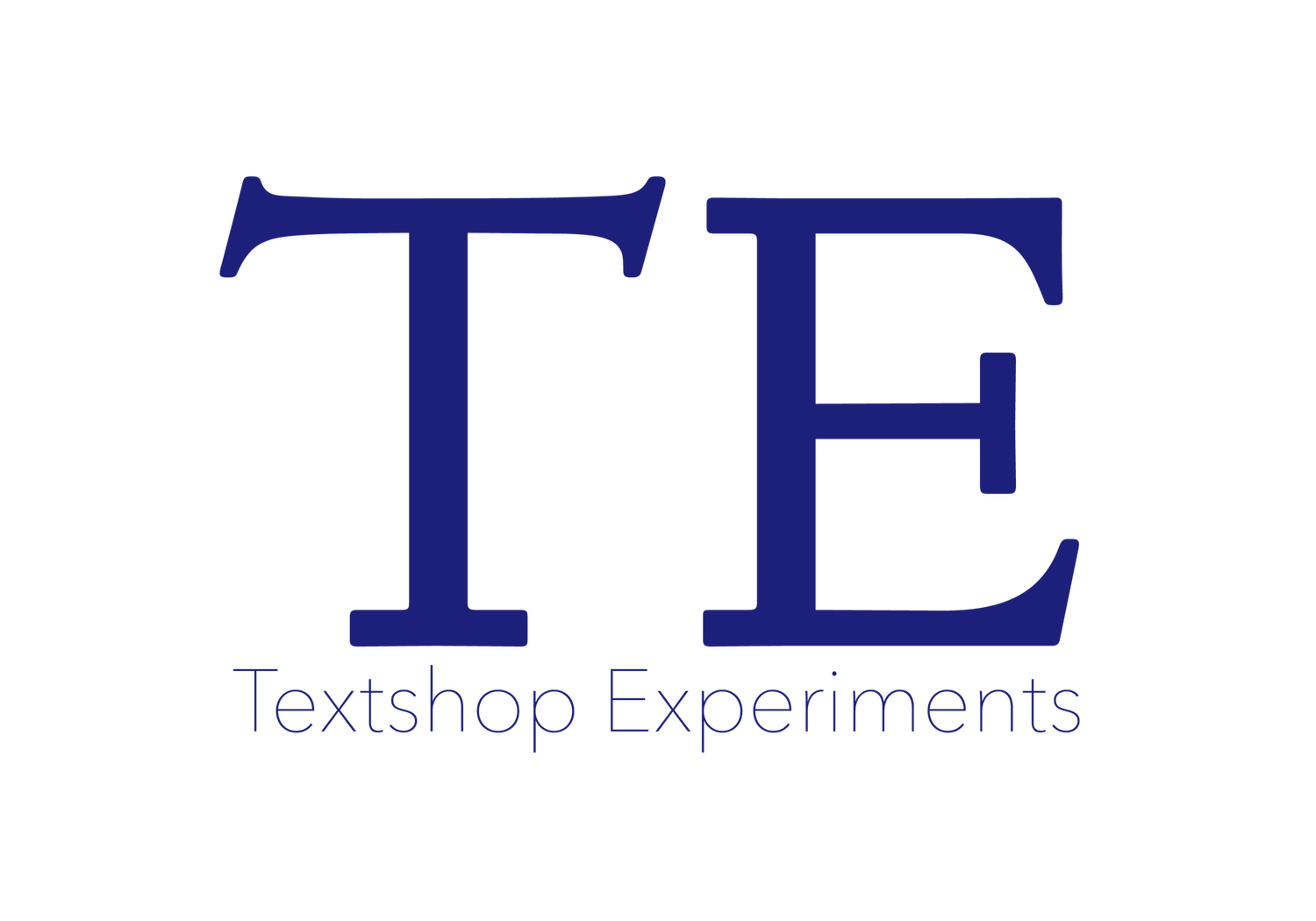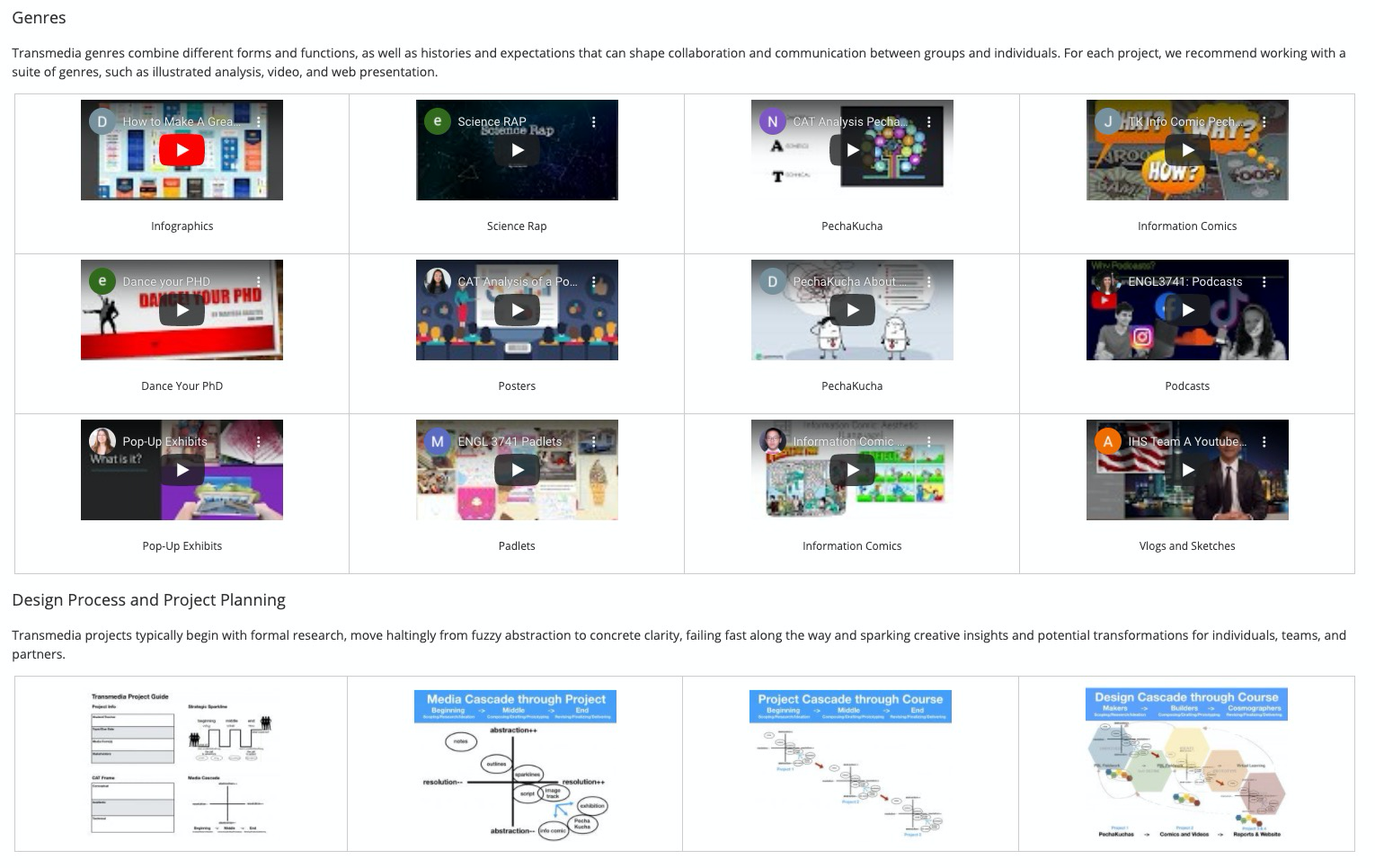StudioLab in Times of Crisis and Change:
Civic Storytelling and Transmedia Knowledge
Jon McKenzie and Megan Chang
Jon McKenzie researches and teaches media and design at Cornell University. His recent book, Transmedia Knowledge for Liberal Arts and Community Engagement: A StudioLab Manifesto (2019), outlines a pedagogy that connects campuses and communities through critical design that combines studio, lab, seminar, and field activities. McKenzie’s gives workshops on transmedia knowledge and strategic storytelling to researchers and teachers, as well as organizations and community groups. His work can be found at labster8.net.
Megan Chang studies the intersection of education, disability studies, and media at Cornell University. Her undergraduate research explores the impact of media technology on learning experiences in schools and communities, especially among differently-abled youth. Her recent community work has focused on civic storytelling with English 9 students at Ithaca High School and with differently-abled students through the Tompkins Seneca Tioga Board of Cooperative Educational Service Career Skills Program.
Civic Storytelling is a multi-year research project at Cornell University that explores partnerships between colleges and community partners through collaborative media-making and critical design addressing real stories about real issues for real audiences.
The project uses the StudioLab pedagogy to translate research on transmedia knowledge into project-based teaching practices. The work builds on the legacies of Urie Bronfenbrenner’s and Felix Guattari’s different ecological models of human development, Gregory Ulmer’s and Bernard Stielger’s respective grammatological research, and the artist activism of Critical Art Ensemble, the Guerrilla Girls, and Reverend Billy.
Below is the script of a video report on initial work with local schools, featuring media resources that we made in response to COVID-19. Most of the materials, including the video and this text, we created over Zoom using common software, design frames, and only little formal training in WordPress. The instructional resources can be found on our project site: blogs.cornell.edu/designmediacommunity
Transmedia Knowledge
Joe Levine (Boynton Middle School): Transmedia knowledge and project-based learning are ways for students to engage with real life challenges through civic storytelling. In spring of 2020, the Cornell class “Design Thinking Media, and Community” worked with teachers and students at Dryden High School and Ithaca High School and with The History Center of Tompkins County to help students combine storytelling and research in their classes. With the COVID-19 crisis, we also developed instructional videos to help teachers integrate transmedia knowledge into distance learning and other pedagogies.
Jon McKenzie (Cornell): Long before the coronavirus, local communities have faced daunting economic and social challenges. Civic storytelling helps address them. We worked with teachers who were redesigning classes using project-based learning practices, which combine student-driven research, collaboration, and public presentation through film, exhibition and other forms of transmedia knowledge.
The Cornell class used the StudioLab pedagogy, where students make media, build collaborative platforms, and co-design worlds. We call these three phases becoming makers of transmedia knowledge, becoming builders of collaborative platforms, and becoming cosmographers or co-designers of possible worlds.
Civic Storytelling
Megan Chang (Cornell): We began with fieldwork, with listening and empathy. After meeting with stakeholders and learning about the high school projects, our teams worked with students, helping address research and aesthetic questions, as we worked across different genres.
What is civic storytelling? It is imparting real stories about genuine topics, whether that be exposing municipal challenges or showcasing regional programs. Through making media, ideas can be approached in a critical and strategic manner that engages the community.
Design Thinking
Megan: Students considered both their school and community contexts: Should students be allowed to use their phones during class? Should students be allowed to take mental health days? How does gender inequality impact sports?
Jon: After our initial fieldwork, teams used the Design Thinking method to refine our design challenge of integrating transmedia knowledge into project-based learning, brainstorming ideas and prototyping solutions.
COVID and Virtual Learning
Jon: However, as we ended our second project iteration, COVID-19 interrupted our work. Just as local students were beginning research on their topics, their classes were suspended, and their media projects deferred.
Megan: The Cornell teams dispersed from campus to locations around the world. We reframed our design challenge to include distance learning, ways that students and educators can use transmedia across virtual platforms such as Zoom.
OK, Zoomers!
Megan: We used our own virtual experiences to extrapolate how our partners' projects could unfold remotely, even though we were no longer in contact due to COVID.
Due to the current pandemic, everyday life as we know it has completely shifted, forcing establishments to close down all over the globe, including schools. However, luckily we are able to shift in-person classes into virtual learning experiences. (De’Vonte Parker, Cornell, Dream Team: How to Make A Great Infographic)
Although our time with our community partners was cut short by the coronavirus, the Ithaca High School students’ pop cultural references as well as our own class’s new format brought our attention to online platforms. Previously considered a distraction or a waste of time, social media is now central to our society as one of the few safe forms of social interaction. (Zoe Watkins, Cornell, Team Bee: Project Post)
Social justice movements use transmedia knowledge. Movements are organized by the spread of ideas and are only as effective as the amount of people are exposed to their ideas. It is then crucial that social justice movements are able to produce ideas and knowledge on multiple platforms that will reach a wider and diverse audience to gain support. (Natalie Slaiman, Cornell, Girl Squad: Transmedia Knowledge)
Podcasts can be created and listened to from the comfort of homes and without need for fancy equipment as long as students have access to a computer and a phone. Many of the production steps involve software and websites that students may already be familiar with. (Gwen Stark, Cornell, THC Team: Podcasts)
A pop-up exhibition is defined as a temporary art event less formal than a gallery or museum, but more formal than private artistic showings of work. This transmedia genre can be used by museums, businesses, and even by schools. (Marinna Chung, Cornell, THC Team: Pop-up Exhibits)
Aditya Jha (Cornell, Team A: YouTube Vlogs & Sketches): Another idea is creating a video sketch. This involves writing a great script, dramatizing different components, and typically has higher production value. The benefits of a sketch are that they appeal to a different audience, and you can incorporate different types of media like video clips that involve showing rather than telling. An example sketch is the one shown here. Sketches for the multi-genre research project can be transmediating the research paper into a video.
Natalie Slaiman (Cornell, Girl Squad: Creating a Documentary Style Video Project for Class!): If you have a Mac, you can always use iMovie which is pre-downloaded into your computer. Once your videos are in the movie library, you can cut and manipulate the videos and even add text with your information.
Vanessa Barragan (Cornell, Girl Squad: Creating a Documentary Style Video Project for Class!): If you’re especially proud of your work, and you’re over the age of 13, you can upload and publish your work to YouTube to share with a greater audience.
Jon: You can find these video resources and others on our class project site at blogs.cornell.edu/designmediacommunity. We hope to see you there.
Coda
The mission of StudioLab is to democratize digitality by democratizing critical design—the extension of critical thinking via tactical media and design thinking. The COVID crisis and renewed struggle for social justice make this mission even more urgent today. We and our local partners struggled with equity and accessibility issues due to the coronavirus.
Both Cornell and the high school students faced suspended classes and then virtual learning, yet while our design teams completed their projects over Zoom, the local schools grappled with challenges of supplying technology and connectivity, as well as delivering Head Start meals and medical supplies. Teachers were able to supply only a handful of early projects, and no public presentations occurred. In short, their multi-genre civic storytelling projects were severely disrupted.
Classes have now ended. As of July, 2020, we plan to continue the Civic Storytelling project in the fall, focusing on youth activism while addressing the equity and accessibility issues encountered in the spring.
We see this work unfolding in uncertain times. The Mellon Foundation just announced a major initiative focusing on social justice, advertisers are abandoning FaceBook, while local communities worldwide will contend with viruses biological, social, and technological well into the future.
What to make of these times of crisis and change? With whom to dream worlds?
Jon McKenzie, New York, jvm62@cornell.edu
Megan Chang, New Jersey, mec326@cornell.edu
Critical Design Teams
Team A: Megan Chang, Emily Chen, Aditya Jha, Benjamin Yeo
Team Bee: Marissa Gailitis, Emmanuel Herskovits, Ellie Walsh, Zoe Watkins
Dream Team: Nana Antwi, Sonsa Gellaw, De’Vonte Parker
Girl Squad: Anna Cummings, Vanessa Barragan, Natalie Slaiman, Jessica Strauss
THC (The History Center) Team: Marinna Chung, Jeremy Dingle, Lara Harvey, Gwen Stark, Natalie Yeh
Community Partners
Dryden High School: Kyle Colunio, Principal; Elizabeth Rechtin, Media Arts teacher
Ithaca High School: Sten Anderson, Margaux Deverin, Colleen Kremmelbein, and Sarah Ostrom, English teachers
Ithaca City School District: Zach Lind, Chief Information Officer
Tompkins-Seneca-Tioga Board of Cooperative Education Services: Sunshine Miller, Director of Enhancement Services; Mary Kay Welgoss, Director of Library Services
Rural Schools Association of New York: Gretchen Rymarchyk, Associate Director
The History Center of Tompkins County: Ben Sandberg, Director; Julia Taylor, Director of Youth Education
Support for the Civic Storytelling project comes from Engaged Cornell, the Society for the Humanities, Mellon Rural Humanities Initiative, and the Kaplan Family Distinguished Faculty Fellowship.
Special thanks to Joe Levine for his voice-over and to his 6th-grade science teacher, Ms. Korb, who assigned him digital portfolio projects.






